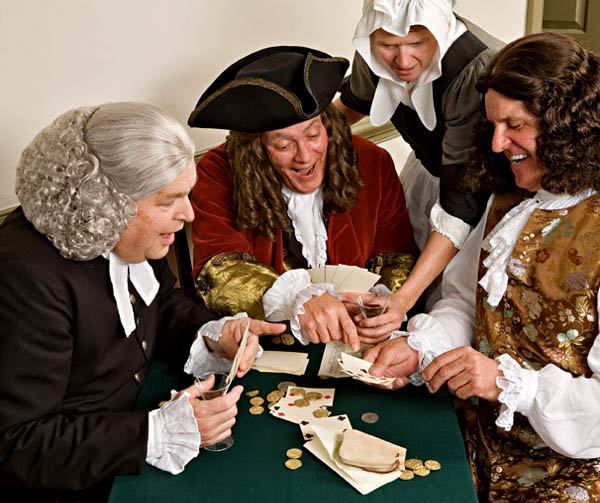Thanksgiving Gambling on Plymouth Rock? Who Knew the Pilgrims Got Their Game on Back in the Day
Posted on: November 26, 2015, 09:00h.
Last updated on: November 18, 2015, 06:09h.

Thanksgiving is the official start to the holiday season in the United States, a time of year when families and friends come together to celebrate their American heritage, not to mention great food and football.
After all, it’s some low-stress merriment, free of the ensuing pressure of shopping lists for everyone you ever met in your life.
Instead, togetherness, a football game outside or watched on television, and a rich L-Tryptophan-laden meal are all that’s required to make this iconic American holiday a success.
Thanksgiving was proclaimed a federal holiday by then-President Abraham Lincoln in 1863 to honor the Pilgrims’ first harvest in the New World back in 1621.
Since then, Americans have celebrated the arrival of the early settlers with a feast of our own, but some might be surprised to know that the rather dour Pilgrims occasionally spread a few games of chance themselves.
Wait, Pilgrims Gambled?
English dissenters were staunchly connected to their religious beliefs, and that fact became one of the leading reasons for their emigration across the Atlantic Ocean, as they opposed King James I’s dictated theology.
They were Quakers, Puritans, Brownists, and over a dozen more religious sects. One thing they all shared was a belief that the Church of England and the Catholic Church (by then two separate entities for 100 years, since Henry VIII broke off with the papacy over his many marriages back in the 16th century) had extended their philosophies beyond the teachings of their sacred text, the Bible.
But not all of the Mayflower’s passengers were motivated by religion. In fact, about half weren’t committed to any religion in particular at all, according to History.com, which we are sure is used at Harvard to teach everything.
Pilgrims spent their days building houses and infrastructure, harvesting food, and creating a sense of community in anticipation of better futures to come. In their spare time, they played a variety of sports and games including hubbub, a game of chance they acquired from the Onondaga Native Americans.
Hubbub was a dice game where players shook a bowl containing five two-sided pieces, often made of bone, that were colored black on one side and white or yellow on the other. The object was to successfully turn the die to the same side, with much betting and many variations of the game played over the years.
It was the first game of chance the Pilgrims enjoyed, but certainly not the last.
Charles in Charge
When Charles II returned the English monarchy to the throne in 1660, he brought with him an abundance of personal pleasures that spread to the newly formed colonies.
In addition to his nefarious womanizing, (the king having had no legitimate children, but admitting to fathering at least 12 with his various mistresses), Charles made gambling mainstream in England.
“At his court, games of chance became a focus of life,” historian Ed Crews wrote in 2008. “The madness not only spread to England’s every corner but roared, like a gale, across the Atlantic … Colonists, like their cousins in Europe, began betting on anything and everything.”
Religious leaders’ disdain for gambling had little affect on those who wished to play. The rise of the tobacco trade, a common crop on the Eastern seaboard of the colonies, also put more disposable income in the pockets of residents.
Gambling became rampant in Colonial America from the Carolinas to New England. They bet on sports, card games, cribbage, and even cock and dog fights.
“This nation was founded by people who left what was home and came over here,” historian David Schwartz told Crews. “Americans are more prone to take risks.”
So on this Thanksgiving, commemorate America’s earliest residents by stuffing your face, watching some sports, and dealing your favorite card game. And raise a glass to the Pilgrims, because, who knew?